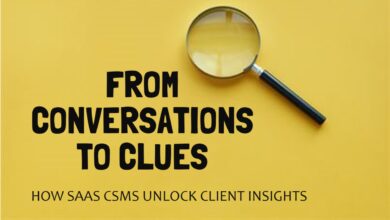Gaming The Hard Market: How A Handful Of Insurance Agencies Are Crushing Their Competition
“You made most of your money in a bear market, but you didn’t realize it at the time.”
Every industry under the sun goes through market cycles. Insurance is no different. It has a funny name: hard market. A tough market characterized by high premiums, low retention rates, low commissions, and many other unpleasant side effects can make it difficult for institutions of all sizes to navigate.
But not everyone. There is no doubt there are thriving agencies out there. But how? Before we can understand “how” these institutions succeed in such risky markets, we first need to understand the market situation itself.
There are many factors that make the market difficult. These include increased catastrophe rates, increased claims costs, market exits, increased reinsurance costs, and regulatory changes. All of this leads to higher premiums, reduced costs, and especially reduced customer retention.
What makes this tough market a little unique? All of this happens simultaneously, delaying any meaningful “recovery.” This explains why premiums have increased for most insurance products, especially property insurance. This figure only exceeds the 24th consecutive quarter of interest rate increases (as of the third quarter of 2023).
The discussion returns to the original question. Despite a decline in market power, how is it possible that so few institutions are raising net new premiums each year, retaining more than 95% of their customers, and generating more commissions per policy than ever before?
It all comes down to four main pillars: customer experience, cross-selling, data integration and carrier optimization.
Perhaps the main reason customers choose to work with a particular dealer/distributor rather than going directly to a carrier is because of the relationship or “personal touch” they offer.
This is true for most professional services. Many people prefer to work with a CPA rather than go to H&R Block. That’s because your CPA knows your situation, lifestyle, and financial goals. Many people prefer to work with certain bankers. Because bankers know them, their businesses, and their business plans. Therefore, CPAs can recommend expert tax strategies that can help individuals save thousands of dollars in taxes, and bankers can help recommend special loan programs to help businesses grow in the most efficient way possible.
Insurance is no different. However, customers need a personal touch more than ever. In an insurance environment characterized by high premiums, it is consumers who suffer the most, and agents are in a position to mitigate this.
However, in this type of market, most institutions rely on turtles. They hide and focus all their energy on retention, and that’s not entirely wrong. This must be resolved. The most proactive agencies prepare their plans before uncomfortable renewal conversations with clients. They double down on relationship-building efforts before innovating to foster interpersonal relationships. They help customers get the best deals and leverage their industry knowledge to help them save more money. They make the entire process very ready and smooth for their customers, and as a result, they are rewarded with loyalty even at the expense of (sometimes much) higher premiums.
But the smartest agencies work a little differently. Rather than focusing solely on employee retention, we maintain certain efforts to secure new business, knowing that most other agencies ignore the above.
In a tough market, consumers are considering all options. If there is no loyalty or your agent only sells based on price, it is almost certain that your book will be cannibalized by shrewd opportunistic agents.
Let that sink in.
hunt? Even if you have a dedicated team, it is very difficult to do this at scale. It’s easier for agents to maintain relationships with authors when they’re just starting out. But when your customer count grows from 50 to 100, or from 100 to 500 or more, that leaky little bucket becomes a complete disaster.
To address this issue, forward-thinking institutions are using data-driven strategies in a personalized way to automate communications with clients and strengthen relationships almost automatically.
This point is very simple, but so important, that it requires its own explanation. Cross-selling (or policy bundling) significantly increases customer commitment. The study demonstrated the effectiveness of pooled policies, with average retention rates for combined policies exceeding 91%, compared to only 67% for single policies. (APP) The importance of cross-selling becomes clear when you consider that at a retention rate of around 85%, growth is unstable and all sales efforts only serve to replenish lost customers.
So how? The best and brightest in the industry analyze customer and policy data to find cross-selling opportunities, then run their own cross-selling campaigns through highly customized automation to increase net new policy revenue and policy retention funds.
There are many creative ways to implement data-driven cross-selling campaigns. There are many more methods discussed in this article. This is typically done using tools such as InsuredMine, Snowflake, SQL, or through our internal data analytics team. (If you need help with this, you can schedule a call with me here.)
While we’re on the topic, the third key to extraordinary growth in a tough market is data. But it’s not just raw data. Good, clean, reliable data.
Almost all institutions in the world are struggling to overcome this problem. In fact, most of the institutional leadership teams I work with today greatly value data and the insights gained from it. They carefully track metrics, analyze data, and use these insights to make bold decisions that define their company.
There’s just one problem. Poor data integrity. Data (and its analysis) is a “garbage in, garbage out” system. Many institutions, especially mature institutions, are constrained by legacy technology systems and leadership teams, and people with good intentions inadvertently make many of the company-related decisions mentioned above, some based on poor or just plain bad data.
Athletes who excel in this area are a little different. They invest in systems that are tightly integrated with each other across CRM, AMS, evaluators, data platforms and other complementary tools. By performing this deep integration, teams are encouraged to actually use the tools provided. Because you can save time, sell more, automate more, retain more, and ultimately earn more.
As a result, leadership teams at these top institutions have a clear picture of what’s really happening in the business, the tools they can use to drive growth, and the data that validates their efforts.
The final measure that differentiates Golden Geese from its competitors is how it has diversified its portfolio across operators. What stands out the most is when operators don’t ignore the same agents who take customers to their destination.
Listen, I understand. Insurance/reinsurance companies are experiencing difficult times at the moment. But ultimately, agencies have to do what’s best for their business. If an agent does most of its business with carrier A, and carrier A’s rates increase too sharply or cut its commission rates in half, the agent will have to move.
Second, the agency must increase incentives for operators. It all depends on the clarity and predictability of the data. Robust, reliable data allows you to maximize your agency’s revenue potential by properly allocating business to different carriers throughout the year.
Ultimately, if used appropriately, this strategy will provide more institutional resources during a recession. This means adding more fuel to acquisition efforts at such opportunistic times.
Simply put, the best agencies in the industry, with explosive new growth, the highest retention rates, and acceptable profitability, don’t win because they outperform 95% of the other agencies. In fact, they generally work less (which doesn’t mean they’re lazy).
The key to success is putting the customer first, leveraging data, and using personalized automation to free up valuable time to win over dissatisfied customers from all the other agencies that aren’t giving them what they really need during these difficult times to see.
Thank you for reading this far. I hope you found this article insightful. If you read this article and want more, or are looking for more actionable step-by-step tips on how to implement these strategies within your agency, you can book a free strategy session with me here.
from now on.
Written by Josh Thomas
This article was first published on Medium in January 2024.









